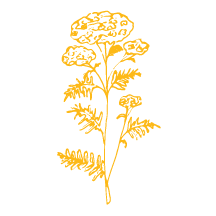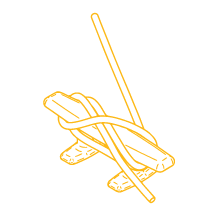
“You put your body there in proximity to, adjacent to, alongside, within.”
—from Citizen, VI [On the train the woman standing] by Claudia Rankine
We lay our bodies down; our bodies let us down.
*****
“Naked Athena appeared and the little boys didn’t know what to do.”
So writes journalist Donovan Farley, recording in all her strut and defiance the nude chimera before the phalanx of gas-masked men—a 2 a.m. mirage. Pepper pellets shot, her calves bleed on a dangerous night in Portland, Oregon, summer 2020. By her side, shield in hand, a friend offers what little protection he can.
She is fearless: “Here is my body—take it if you dare.”
We lay our bodies down.
*****
He was beaten with a nightstick.
Skull fractured on the Edmund Pettus Bridge on March 7, 1965, it was not the only time John Lewis lay his body down for justice. Just 21 years old in 1961, Lewis was one of 13 original Freedom Riders—alongside his colleagues, assaulted throughout that hot civil rights summer.
We lay our bodies down.
John Lewis died not 24 hours before Naked Athena made her debut—pancreatic cancer did him in at age 80, this titan of good trouble.
Our bodies let us down.
*****
She is brazenly alive, Naked Athena, in her pluck and posture. She reminds me of my daughter, only alive—so very alive.
(I slept as your body tumbled down—needle in your arm; spittle down your chin.)
Substance Use Disorder. Hypertension. SARS-Cov-2. Pancreatic cancer. Aging.
Our bodies let us down.
*****
“Take and eat; this is my body,” said Jesus, knowing what was to come—his mortal flesh.
Our bodies let us down, though we carry them while we can, and while we can, we lay our bodies down—in sacrifice for love, for justice, for humanity. For what we believe: our vulnerable bodies.
(My God, my God, why hast thou forsaken me?)
We lay our bodies down.
*****
I have been thinking about bodies—my body. How it lets me down. How I am broken. How all our bodies break. How my people are the broken people; how we are all broken.
Our bodies let us down.
I have been thinking about bodies—my body. How it once stood steady, my daughter small, my body large—protector. Her body in its living swagger (before the opioids), chest thrust out, an exalted “I am here—I am now!” Our bodies our badge our being; our naming loving clasp; our gift to give.
(“Take and eat; this is my body.”)
We lay our bodies down.
*****
Inevitably, our bodies let us down. Of that I have been thinking these COVID days, each of us so mindful of fragility—so fearful of other bodies in their proximity to ours. Schools confounded, economies collapsing, people dying—so little we control.
And yet here, on a broken July night and day, I see a most unexpected pair twinned in grace and agency: she, her anonymous body bare and powerful on a Portland protest night; he, his Black body (in harm’s way time and time and time again for justice) finally released.
A modeling: our broken bodies let us down, yet in laying them down, we are redeemed.




